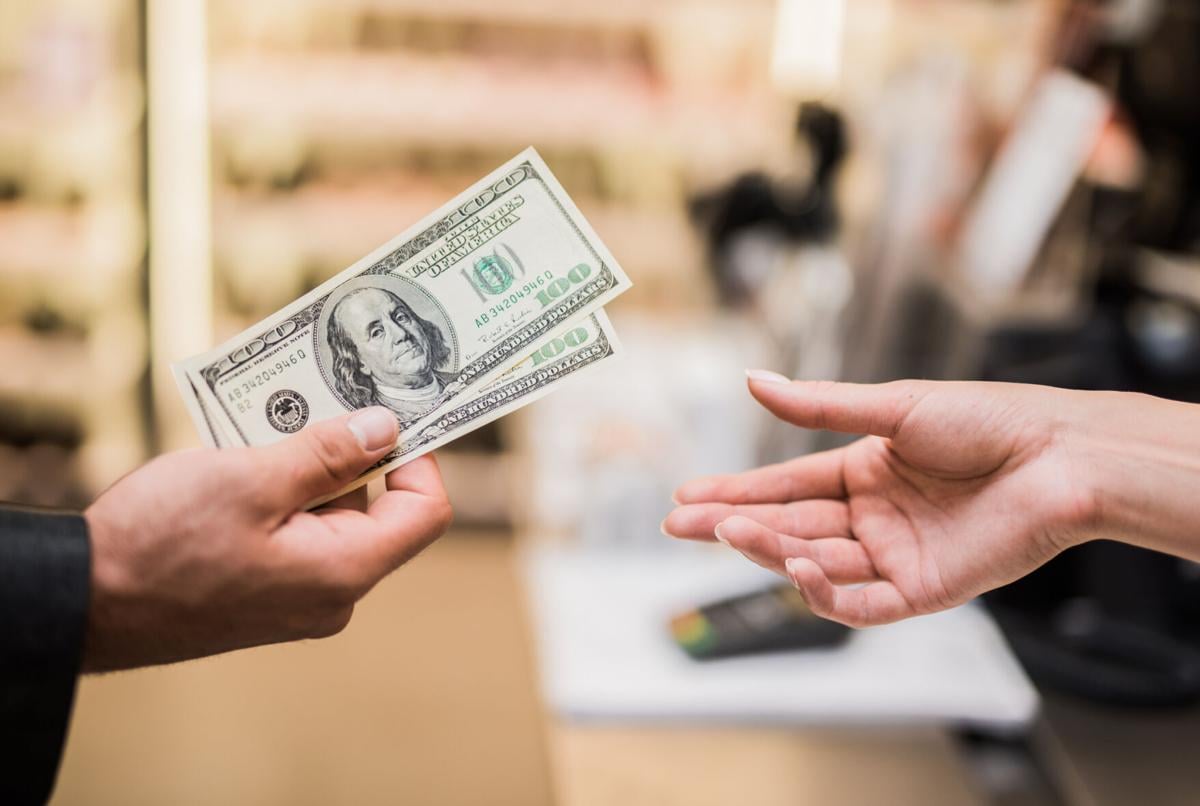PHOENIX — The way a Scottsdale lawmaker sees it, the words are written on every bill and should be obeyed.
No, not “In God We Trust.”
It’s the language that says “This note is legal tender for all debts, public and private.” And Republican Rep. Joseph Chaplik wants to be sure that Arizonans don’t get turned away from businesses in the state because they want to use that “legal tender” to pay.
His HB 2555, awaiting action by the full House, would spell out in law that any business with a physical location in Arizona “must accept cash as a payment for goods and services.” And it also spells out that consumers with cash cannot be charged a penalty.
The measure even comes with teeth. Customers whose cash is refused can seek civil damages of $1,000 a day from the errant merchant.
There have been moves away from cash since the COVID outbreak, with some merchants loath to accept dollar bills and the viruses that they fear they might carry. Chaplik scoffed at that logic, saying there’s no more chance of transmission of disease from cash as there is from pressing the buttons on a device that accepts credit and debit cards for payment.
Instead, he said the issue is that there are people who, for whatever reason, only operate with cash.
That, Chaplik said, includes about 6 million people who are “unbanked,” meaning they have no relationship at all with a financial institution.
“This helps those individuals that live paycheck-to-paycheck and cash their checks,” he said. And Chaplik said that includes 11% of Black and 9% of Hispanic people.
The lone person to testify against the measure when it was heard earlier this week in the House Commerce Committee was Mike Huckins, lobbyist for the Greater Phoenix Chamber of Commerce. He described the measure as an unacceptable mandate on business.
“While we understand that some people prefer to use cash, it’s our position that businesses should be free to take the form of payment that best suits their individual business model and/or needs,” Huckins told lawmakers.
“There are many reasons why businesses may choose not to accept cash payment, including operational efficiencies, less risk of robbery or accepting counterfeit bills,” he said.
The Federal Reserve — the folks who print out all those bills with the “legal tender” verbiage — says there is no federal law mandating that any person, private business or organization must accept their currency or even coins from the U.S. Mint.
“Private businesses are free to develop their own policies on whether to accept cash unless there is a state law that says otherwise,” the agency says.
But lawmakers on the panel from both parties were not convinced.
Cesar Aguilar, D-Phoenix, recalled as a “broke college kid” not being able to pay cash for his rent. In fact, he said, the only way to pay the rent was to log into a web portal which charged an additional fee to use a credit or debit card.
Rep. Justin Heap, R-Mesa, spoke of his time working in construction along with Hispanics.
“I know a lot of them were operating on cash only,” he said.
“I don’t know how those people function in a cashless society,” Heap said. “And I don’t feel there should be any burden on them to go to banks and get debit cards if they don’t want to when, as Mr. Chaplik pointed out, the cash states on it that it is for every debt, both private and public.”
Whether you're hoping to pay down some debt or save for early retirement, most of us have financial goals for 2023. But how can you make those money resolutions stick?





